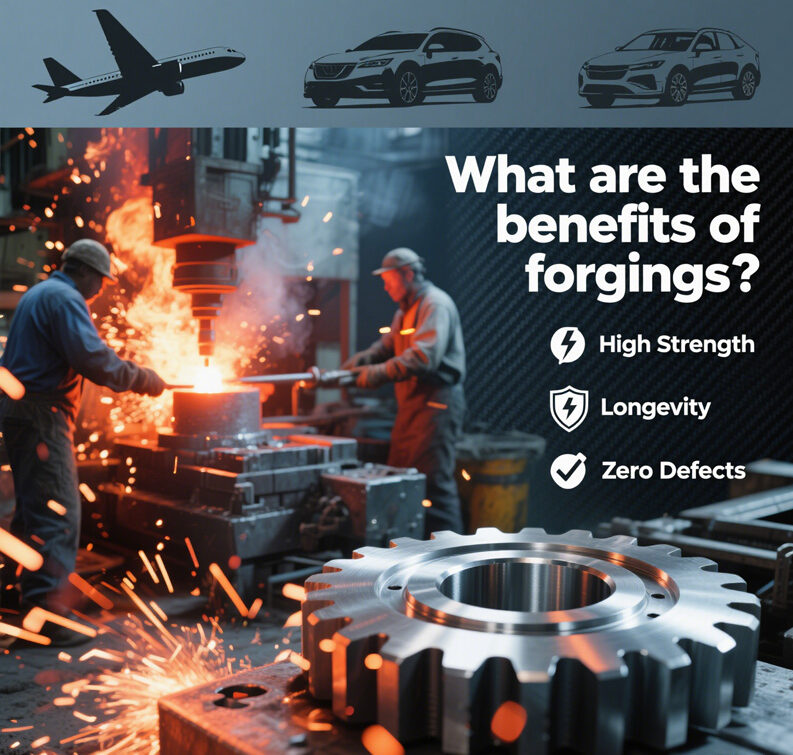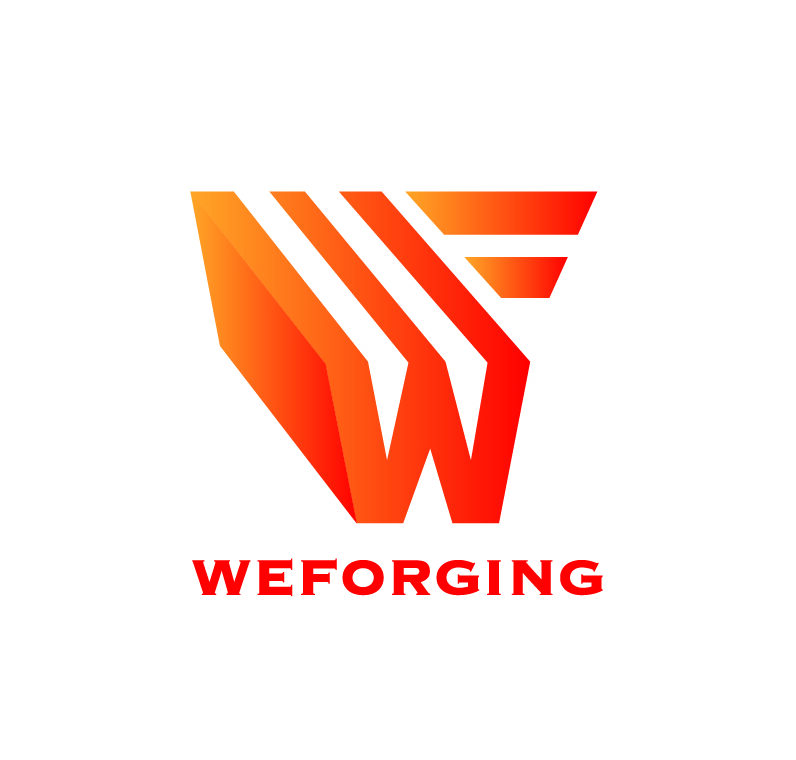What are the benefits of forgings?
Why do industries such as automobiles, aerospace, ships, mechanical equipment and heavy engineering vehicles need a large number of forgings? Compared with other metal forming processes, what advantages does hot die forging have? This article will explore the main advantages of forgings and why they are the preferred choice in high-performance applications.

Higher mechanical performance
Enhanced Strength and Toughness in Forgings
Forging improves metal properties by refining grain structure through physical deformation while eliminating internal defects (such as pores and shrinkage porosity) at optimal forging ratios. This process ensures continuous metal fiber flow, significantly increasing tensile strength, fatigue strength, and impact toughness. As a result, forgings exhibit higher fatigue life and toughness—several times greater than castings.
Superior Metal Flow in Forgings
Forging enables directional grain alignment (such as streamline distribution in die forging), enhancing mechanical properties in specific orientations. In contrast, castings typically display uniform but weaker anisotropic properties, often containing weak points that reduce performance.
By choosing forgings over castings, industries benefit from greater durability, reliability, and mechanical performance.
Better organizational performance
After heat treatment, the yield strength can be enhanced, resulting in higher impact resistance.
The microstructure is good after heating, so the mechanical properties are uniform and stable.
Compactness: The forged parts have almost no casting defects such as pores and shrinkage cavities, and the internal structure is highly dense. They have a stronger load-bearing capacity and are safer under high pressure and high load conditions.
Low defect rate: Casting is prone to problems such as slag inclusion and sand holes, has poor density, and is highly related to the humidity of the weather.
Forging vs. Machining & Casting
| Property | Forging | Casting | Machining |
|---|---|---|---|
| Tensile Strength | +20–30% | Lower | Medium |
| Grain Flow | Continuous | Random | Broken |
| Porosity | Low | High | None |
| Impact Resistance | Excellent | Poor | Good |
| Dimensional Repeatability | High | Medium | High |
| Lifecycle Cost | Low | Medium | Higher (for large parts) |
Special environmental adaptability
✔ High/low temperature performance: The uniform structure of the forged part has a stronger resistance to creep and brittle fracture at extreme temperatures. For example, the turbine disk must be forged to withstand high-temperature stress.
✔ Corrosion resistance: The dense structure reduces the penetration of corrosive media, and it is easier to create an anti-corrosion depth on the steel surface during surface treatment. Therefore, it is more corrosion-resistant than porous castings.
Why Forging is More Cost-Effective for Mass Production
While forging requires an initial investment in molds, it becomes highly economical in large-scale production due to:
✔ Near-Net Shape Forming – Minimizes material waste, especially for high-value alloys.
✔ Reduced Machining Time – Lower labor and processing costs vs. machining from solid stock.
✔ Longer Mold Lifespan – More durable than casting molds, reducing long-term tooling costs.
Critical Applications: Where Forging is Indispensable
Forgings ensure zero safety risks in high-stress environments, including:
🔹 Gearbox & Transmission Systems – Handles extreme loads in automotive and industrial machinery.
🔹 Energy & Agricultural Equipment – Corrosion-resistant forgings for harsh environments.
🔹 Heavy Machinery Hydraulics – High-strength cylinders for mining and construction.
Why Choose WeForging?
✅ 40+ Years of Expertise – Precision forging for industries worldwide.
✅ Advanced Quality Control – In-house lab & flaw detection for defect-free parts.
✅ ISO 9001 & AS9100 Certified – Meets aerospace and industrial standards.
✅ Global Supply Chain – Reliable, fast delivery to meet your production needs.
Your forging solution provider:
Forging manufacturers offer unparalleled strength, durability and cost-effectiveness for demanding industrial applications. Whether you need custom-made forgings or machined parts in bulk, Weforging can provide you with high-quality solutions. We will tailor the product process according to your application scenario and strictly follow the technical requirements.
Contact us immediately to discuss your project requirements!

